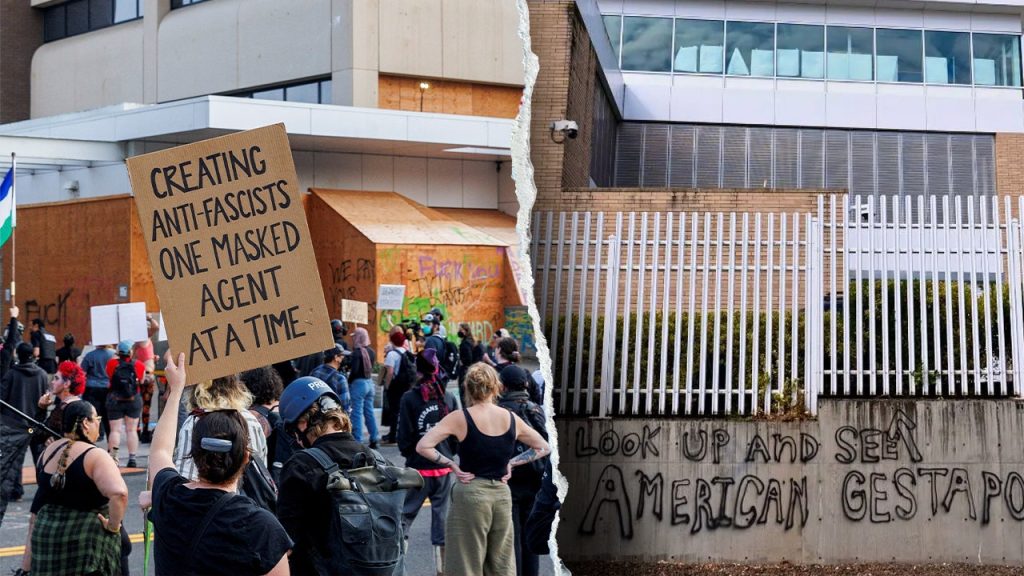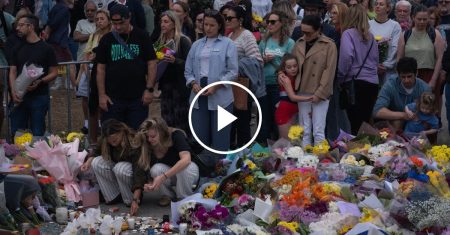Justice Department Launches Investigation into Portland Police’s Protest Response
In a significant move that highlights the ongoing tensions between federal and local authorities, the Justice Department has announced an investigation into the Portland Police Bureau’s handling of recent anti-Immigration and Customs Enforcement (ICE) protests. The inquiry, announced by Assistant Attorney General for Civil Rights Harmeet Dhillon, comes amid accusations from the Trump administration that local police have shown bias in their enforcement actions during weeks of demonstrations. “We will not leave the people of Portland at the whims of criminals and woke cops,” Dhillon declared on social media, setting a confrontational tone for the federal investigation. This development represents the latest chapter in Portland’s complex relationship with federal authorities and raises important questions about the balance between local autonomy and federal oversight in law enforcement matters.
The investigation centers on several specific incidents that have raised concerns within the Justice Department, including the arrest of a conservative journalist and allegations that police actions have limited ICE’s ability to use its Portland facility. In a formal letter to Portland City Attorney Robert Taylor and Police Chief Bob Day, Dhillon requested unredacted incident reports related to use of force, arrests, and other actions taken by police responding to protests at ICE facilities over the past month. The Justice Department has set an October 10 deadline for these materials, signaling urgency in their review. The city received this federal inquiry while its lawyers were already in court attempting to prevent the deployment of National Guard troops to protect federal property—a coincidence that underscores the multilayered tensions at play in this situation.
Portland has become a flashpoint for immigration-related protests since the Trump administration took office, with demonstrations against ICE enforcement actions occurring regularly. Recently, these protests have intensified, sometimes erupting into chaotic confrontations between demonstrators and authorities. The arrest of conservative journalist Nick Sortor late Thursday night while he was documenting these protests has become a particular focus of federal concern, with White House spokesperson Karoline Leavitt describing it as an “extremely troubling incident.” According to Leavitt, the Department of Justice spoke with Sortor the following morning and intends to conduct a “full investigation” into his arrest, suggesting the federal government sees this case as potentially emblematic of broader issues with Portland’s protest response.
The federal response to the situation in Portland extends beyond just an investigation. The Trump administration has announced a review of federal funding to the city, with Leavitt stating, “We will not fund states that allow anarchy.” This threat of financial consequences adds significant pressure to local officials already navigating complicated dynamics between protesters, police, and federal agencies. The White House framed the situation as one where “left-wing mobs believe they get to decide who can visit and live in their city,” positioning the federal government as a necessary corrective force. “It is not their city; it is the American people’s city, and President Trump is going to restore that,” Leavitt declared, reflecting the administration’s perspective that local authorities have failed to maintain appropriate order.
The city of Portland has responded cautiously to these federal actions. In a statement provided to Fox News Digital, city officials acknowledged receiving the inquiry but noted they were still reviewing it and did not have specific comments on the federal government’s requests. However, they did express confidence in their police force, stating, “Mayor Wilson has full faith in the Portland Police Bureau’s commitment to protecting public safety, upholding the rights of all individuals to lawfully assemble and impartially enforcing the law.” This measured response suggests the city is attempting to defend its police practices while avoiding further escalation of tensions with federal authorities who hold significant power over funding and potential intervention.
The Portland situation reflects broader national tensions around immigration enforcement, protest rights, and the relationship between federal and local authorities. The Justice Department’s investigation raises important questions about who ultimately determines appropriate police response to protests and where the line should be drawn between protecting public safety and respecting First Amendment rights. As this investigation unfolds, it will likely have implications not just for Portland but for cities across the country grappling with similar challenges around protest management and federal-local relations. The outcome could shape how municipal police departments approach demonstrations related to contentious federal policies and may influence the delicate balance of power between different levels of government in law enforcement matters.










